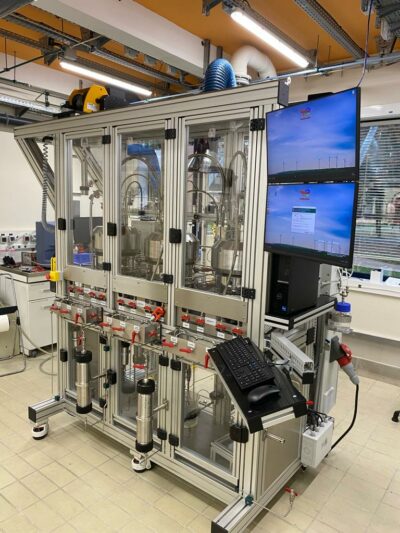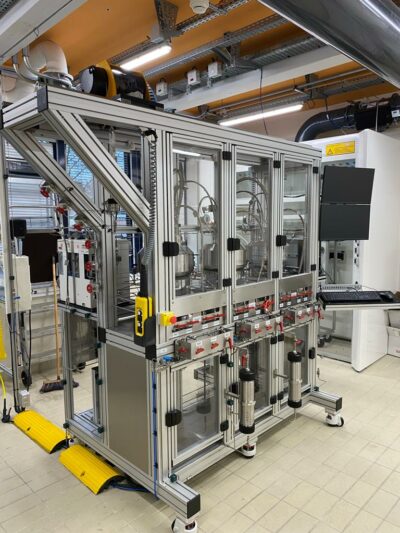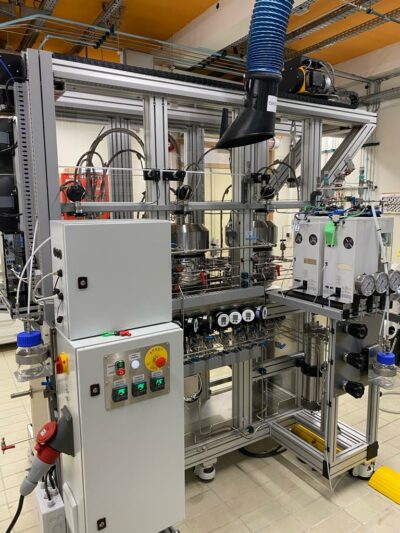Advanced Radial Flow Test System
This advanced testing rig has been designed specifically to meet the requirements of a laboratory. It accurately replicates the fluid drainage and circulation stages encountered during drilling operations, enabling detailed analysis of potential fluid damage at the well/reservoir interface.
Key Features and Specifications:
Pressure and Temperature Resistance: The testing rig is built to withstand high pressures of up to 400 bar and temperatures reaching 250°C. Additionally, it is designed to resist strong acids, specifically 15% hydrochloric acid (HCl), ensuring durability and reliability under harsh conditions.
Multi-Sample Testing Capability: The rig can conduct tests on three rock or sand samples simultaneously, allowing for efficient experimentation and data collection.
Fluid Injection and Composition: The rig allows for radial injection of various fluids, including:
- Brines
- Mineral oils (such as Marcol 52)
- Mud (both water-based and oil-based containing solids like carbonates, fibrous solids, and polymers)
- Acid treatments (both weak and strong, including 15% HCl)
- Gases (such as nitrogen)
The fluid density range is designed to accommodate densities from 0.80 to 2.2 specific gravity (sg), suitable for a variety of geological applications.
Fluid Flow Sequences: The rig is capable of replicating fluid sequences and injection flow rates consistent with those used in actual oilfield operations, allowing for realistic testing scenarios.
Damage Assessment: The testing setup facilitates detailed analysis of internal damage within the rock samples due to fluid drainage. It is designed to evaluate damage distribution in layers, specifically identifying if damage occurs within the first centimeter, up to 3 centimeters, or uniformly throughout the entire rock sample. This provides valuable insights into the extent and nature of fluid interactions with the rock matrix.
Dynamic Fluid Circulation: The rig supports dynamic circulation of fluids (mud) in a closed-loop system under maintained line pressure. This ensures that internal pressures remain consistent throughout the testing process.
Independent Sample Testing: The rig allows for independent testing of each rock/sand sample, enabling detailed assessment of initial and final permeabilities. Testing can be conducted on a single sample or all three samples concurrently, offering flexibility to the researchers.
This state-of-the-art testing rig is an essential tool for the RWI Laboratory, facilitating a deeper understanding of fluid-rock interactions and aiding in the assessment of potential fluid-induced damage during drilling operations.



